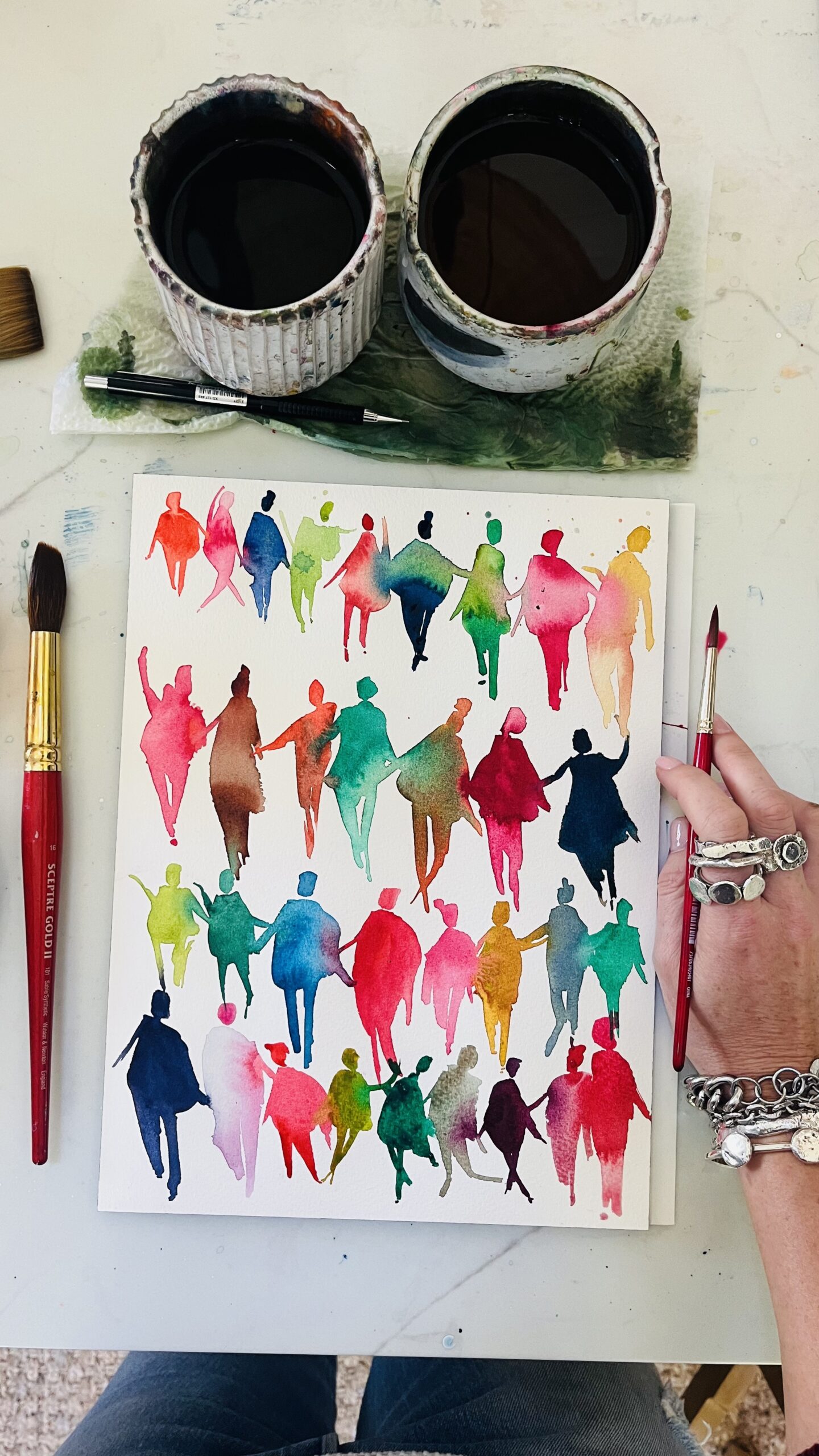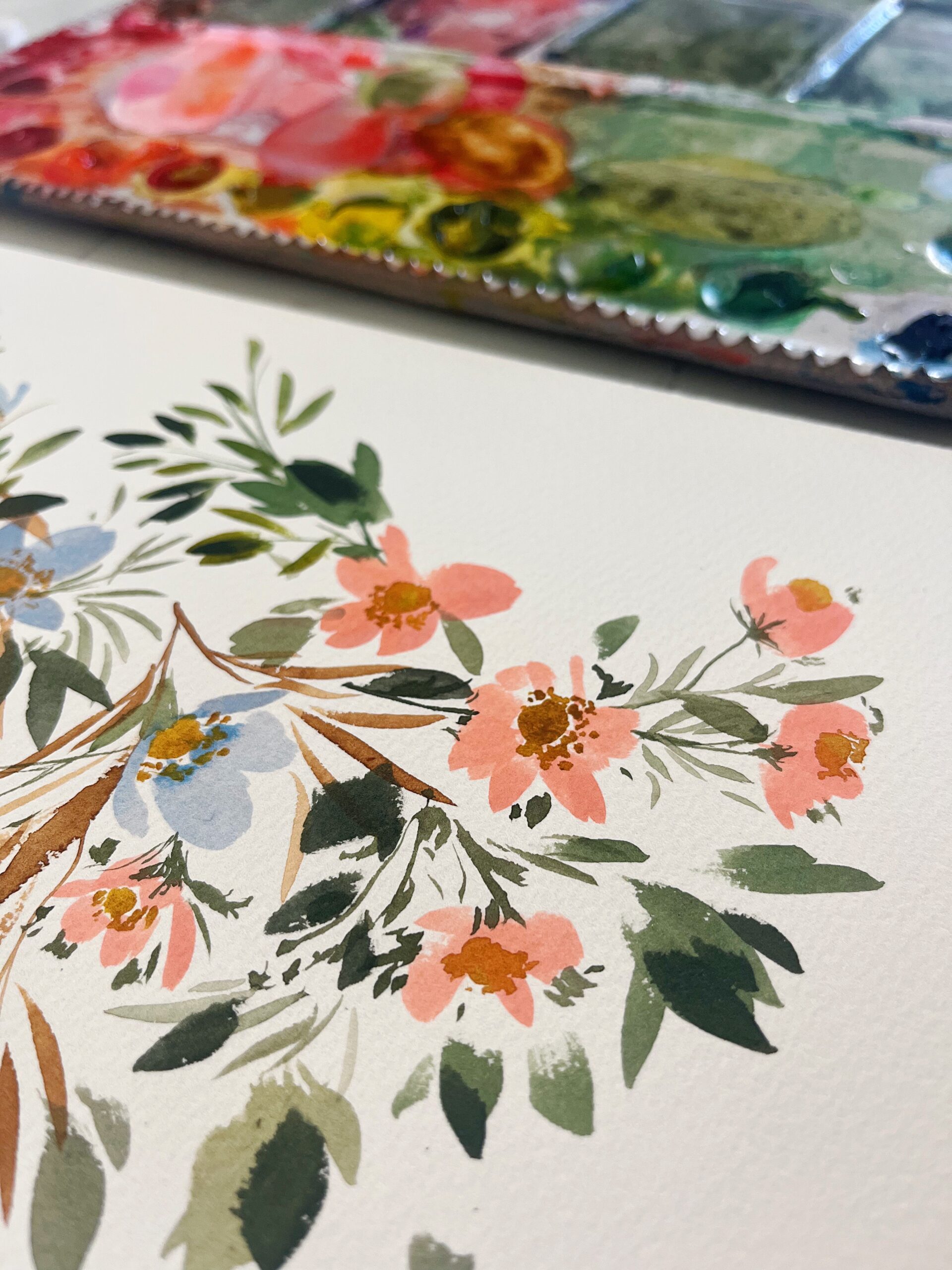Not sure what legal steps to take when starting a business?
I can’t even tell you how many times I’d wake up in the middle of the night in the early days, in terror, just thinking I’d somehow be ousted by the lawmakers…whoever these people are, because I had NO IDEA if I was operating as a legitimate business. Trademarks and LLCs, sales tax…you know, the stuff that makes a creative person squirm! Yep, we're diving deep into the legal steps you should take when starting a business! So if you’re thinking about starting a business, or maybe you’ve been in business for a few years now and want to know if you’re operating as a LEGIT biz, I'm going to cover the biggest steps you need to take to make sure your business is set up properly.
1. Is the Name Available?
First step when starting a business: pick an available name! Ok. This might seem super straightforward, but it’s not just about making sure the Instagram handle is available, people.
What I mean is, you’ll start by picking a company name that is available and isn’t trademarked. A trademark is the exclusive right to use a company name. The company that owns the trademark for the name is the only one who can use it. If you use a trademarked name, you could be sued or forced to rebrand which can not only be expensive, but incredibly time consuming!
So, let’s pretend I was thinking about starting a business and I liked the name “googley eyes paperie.” I go on Instagram, the handle’s available (“OH SICK!”) so then I check Google and the domain is ALSO available (“EVEN SICKER!”).
Well guess what?! It doesn’t matter if the LLC name or DBA name, the Instagram handle, or domain is available. If someone else owns the trademark for “googley eyes paperie,” it’s still not a good idea for me to use that name. Someone else can still own the Trademark for that name! So, you’ll want to run a trademark search to make sure your name is available. Otherwise, you might be registering a company name that you can’t legally use. Don’t worry, I’ll tell you how to do that in a little bit.
2. Registering Your Company
So, once you find an available trademark, the next step is to register your company.
LLCs + Corporations
If you meet with your accountant and it makes financial sense for you, you may want to register your business as a legal company, instead of just being a sole proprietor.
The biggest reason or benefit to becoming an LLC or Corporation is limited liability. If you don’t register your business as a legal company, then you and your business are the same person. You’re personally liable for everything that happens in the business. Your personal assets are considered company property. You may have to use your house, car, or bank account to pay for business debts, contracts, and lawsuits. If you do register as an LLC or Corporation, then you and your business are separate people. You aren’t personally liable for business debts that you might owe or lawsuits. Your personal assets are considered separate from the business. For example, if you get into a car accident with a company car, or you are unable to pay back a business loan, or someone files a lawsuit against you for copyright infringement, etc. you won't need to use personal assets to pay business debts!
Meet with a good attorney (I work with Framework Law Group) and think about how much it costs to form a company in your state and how much risk you have. Each business is going to be different, so this is why it's crucial to meet with an attorney and consult your account on this matter!
DBAs
You may need to file a DBA or a Doing Business As with your city/county. You typically need a DBA if you’re not registering your company as an LLC or Corporation AND your business name is different than your personal name. You also need a DBA if you are registering your company as an LLC or Corporation and you’re using a different brand name than the registered name. You'll typically file a DBA with your county or state, so a little Google research will help point you in the direction of where to register for a DBA if necessary.
Tax Identification Number
Once you file an LLC or DBA, you’ll want to obtain a tax identification number or EIN from the IRS. This is how you file your taxes as a business. When you’re a sole proprietor, your tax identification number is your SSN, but once you form an entity, you’ll need to obtain an EIN. You can do it online through the IRS, and it’s pretty simple.
Does your Business need a Business License?
Many cities and counties will require you to file a business license. This is the paperwork you need to do business in that city/county. Some cities require it for everyone. Some only require it for certain industries. Head to your city or county website to see if you need a business license. Typically, you can file a business license online or head into your city or county office to file in person.
Sales Tax
Read your state tax website to see how to register with your State Tax Board. Find out your state and local sales tax laws to determine if your products need to be taxed.
Business Bank Account
It's so much easier to keep all business income + expenses in one place. Trust me. When I first started my business, I had all of my business income and expenses co-mingled with my personal. It was a bookkeeping and accounting NIGHTMARE! When it’s time to file business taxes, you’ll want to have it separate so you can calculate how much you spent on your business. It gets SO messy when you keep it all together. Make things easy on yourself and set up a separate account!
It’s also necessary to keep your limited liability separate as an LLC or Corporation. If you want your business to be separate, you have to keep your money separate! Sounds pretty straight forward, but so many creatives never think about this.
3. Protect Your Brand
If you’re an artist and looking to get into licensing, some manufacturers and companies require that you trademark your brand. As mentioned before, a trademark is the exclusive right to use your company name, logo, or tagline. AKA: That means you're the only one who can use it. Once your company starts doing well, you may start to see other companies popping up with similar branding. They’ll confuse your potential customers and steal sales and without a trademark, there’s no way to stop them!
Only one company can own a brand and it's typically who trademarks it first. If another company trademarks your brand first, they’ll own your name nationally. You'll have to rebrand or file an expensive lawsuit which, as mentioned before, can be expensive and incredibly time consuming. That’s why a trademark is so important.
Review Your Brand
Some words and phrases can't be trademarked because they're free for anyone to use.
It’s crucial you pick a name that is available and can be trademarked. Even if you can’t afford it (the trademarking process can get expensive!) or don’t want to trademark the name right away, it’s always a good idea. For example, when I first started, I had no idea I’d get into licensing one day and would need a trademark because of the manufacturers I work with. Had I picked a business name years ago that I just liked, but couldn’t own the trademark to I’d definitely run into issues.
So, how do you find out if a trademark is unused? You run a Trademark search!
How to Run a Trademark Search
Simply put, there are a lot of names out there that are already trademarked.
A trademark search isn't as simple as inputting your exact company name and hitting search. You'll need to dig around for similar sounding words, similar spelled words/phrases, alternate pronunciation of words, and foreign translations. Yea, I know. Extensive.
You can search Google, social media sites, and the USPTO like this:
- Search your exact company name
- Search keywords from your name
- Search any spelling variations of your name
Write down all the similar companies. You’ll want to know what they sell, where they sell, and when they first used the name.
Once you find the search results, you'll need to determine if any of these brands are too similar to your name. The reason for this is, in some cases, you may decide to proceed with the name, even if there’s a brand with a similar trademark – maybe the spelling is different, or there’s an extra word…but they’re in a completely different industry than you. Or you can’t find them using the trademark anywhere. However, if this brand is selling greeting cards and you want to do custom wedding stationery, then this may get confusing for potential customers! But, if they do landscaping and you're a pattern designer, then you probably won't have many potential customers confusing the two businesses. See what I mean?
Along with this, if they’re too similar, you can be sued or forced to rebrand. Plus, any trademark applications you file will be denied and you won’t be issued a refund. And trademark applications aren’t cheap. So it’s really important to make sure that you run the search correctly.
That’s why it’s best to have an attorney run your trademark search. It needs to be done correctly to make sure that your brand is available before you start using it. And it's best to hand over the money to a lawyer that can do this right the first time, because it can cost you a lot of money down the road with a DIY trademarking process!







Wow! Priceless information! Goodness gracious thank you Jenna for this incredibly important episode! I was familiar with some of this content when I started a small business several years ago but now that I’m in a position to really start something I can pour into, the FREE information in this podcast is so deeply appreciated. I seriously can’t recommended this enough to other creatives! Looking forward to learning from your other podcasts! A huge Thank You!!!
So glad it’s helpful, Jen! And thanks for your support! xo
Hi Jenna,
Forgot to mention- where do I leave a 5 star rating for you!!
Thanks-
Odile
If you’re using the apple podcast app, you can leave a review here! Thanks so much!
Hi Jenna,
Just finished listening to your podcast #10 about all the legal stuff. Thank you so much for taking the time to give us this information! It is priceless, and your podcast is the bomb!
Just wanted to let you know that you’ve given me motivation through all your very detailed podcasts by keeping it real. The one thing (among many others!) that resonated with me was how you talked about how a business should really get to know their customers and servicing their needs by asking them what they want from you. Good advice!
I’m planning on taking your watercolor tutorials soon.
PS- I found this Facebook seminar that has a free online training session “Prepare for the Changes Coming to Facebook and Instagram” and thought maybe you could look into it and do a podcast that just focused on creatives, etc. I haven’t listened to it but thought it would make great content for you. Just a thought!
Odile
Thanks for sharing, Odile! I’m so glad you’re loving the podcast. xo